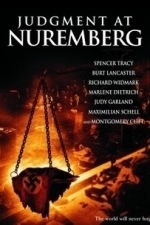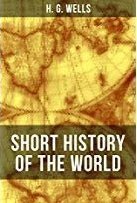RəX Regent (349 KP) rated Judgment at Nuremberg (1961) in Movies
Feb 19, 2019
With a title like “Judgement at Nuremberg,” you can be forgiven for expecting a film about the trial of the Concentration Camp guards or Hermann Goering, but instead we are given something much more subtle and subversive. This follows a fictionalised account of the “Judges Trial”.
Here, Spencer Tracey’s U.S. Judge leads a panel of three peers as they preside over a trial of four NAZI judges, the focus of their crimes is not of there actions during the war but those in the mid 1930’s and their perversions of justice in aiding Hitler’s NAZI’s to oppress their own people.
The film also asked a myriad of uncomfortable questions, not only taking aim at the long dead National Socialist movement, but the world as a whole, including the U.S.A. Sighting parallels from Allied nations who claim cultural superiority after winning the war yet only being a stone’s throw away from the same attitudes.
But this is not just subverting the perceptions of jurist prudence, it is a drama, a head to head between Tracey and his German counterpart in the doc, Bert Lancaster. It is also a vehicle for a host of Oscar worthy performances from an all star cast, ALL of which excel in their roles, some more subtly than others.
The standouts are Montgomery Cliff and Judy Garland, both of whom would pass away soon after this film was release at relatively young ages. Kramer’s cinematography is impressive too, as it keeps the camera moving around the courtroom through the lengthy cross-examination scenes, keeping the tension high and the interest alive through this three-hour drama.
With a healthy dose of melancholy, jaded and brutalised characters and foreshadowing the impending Cold War, this is a film which understands war and the often forgotten fact that even though Wars have a start and and end date, they take decades to build up and never really end.

Nancy Love and the WASP Ferry Pilots of World War II
Book
She flew the swift P-51 and the capricious P-38, but the heavy, four-engine B-17 bomber and C-54...

Marshal K.K. Rokossovsky: The Red Army's Gentleman Commander
Boris Sokolov and Stuart Britton
Book
The author Boris Sokolov offers this first objective and intriguing biography of Marshal Konstantin...

War of Gods Box Set (War of Gods #1-4)
Book
Box set featuring all four novels in the bestselling War of Gods paranormal romance series. ...
Paranormal Romance

Putty: From Tel-El-Kebir to Cambrai: the Life and Letters of Lieutenant General Sir William Pulteney 1861-1941
Book
Once described by a subordinate as "the most completely ignorant general I served during the war",...
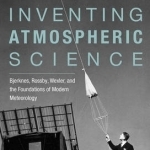
Inventing Atmospheric Science: Bjerknes, Rossby, Wexler, and the Foundations of Modern Meteorology
Book
"The goal of meteorology is to portray everything atmospheric, everywhere, always," declared John...
BookblogbyCari (345 KP) rated A Short History of the World in Books
Aug 5, 2018
As I hoped, the book often reads like a novel, with 67 distinct sections, each like a mini story. In order to fit the history of the whole world into one book, by nature the story telling ranges from nice and rapid, to a little too rapid. I found it rather like a catalogue of numerous interesting little nuggets of information. Despite covering events from all over the world, the topics often flow seamlessly from one topic to the next. Due to so many overlapping topics, this history of the world isn't told in a linear purely chronological pattern, but has to go backwards a little, now and again.
At various times throughout, the stories are gripping and Wells successfully brings history to life. I particularly liked the various sections on religious leaders. Appropriately, Wells tackles religion as would any unbiased historian-become storyteller. I also enjoyed the beginning, where Wells paints a crystal clear picture of our solar system and the vast empty space that our dramas are within. His description of our galaxy sounds nothing short of beautiful.
The book was meant to be predominantly factual, but Wells did include a substantial amount of speculation and opinion. This does not distract from the storyline, but adds value in generating the concepts of the time periods.
It covers progress and prosperity as much as carnage and decimation, and provides good explanations of everything it covers. (Although it would benefit from more illustrations). At times it feels detail heavy but also gives the reader a feel for each age - the book is not limited to which country went to war with which country and when, but also examines changes in ways of thinking through the ages. Including the Ancient Greek philosophers, Arabian progress in maths and science, the advent of experimental science, and the development of political and social ideas in Wells’ time.
I was reassured to learn that despite not studying the history of the world in its entirety in school, I was already familiar with much of the book’s content. Having said that, there were also topics where I really felt I was learning something. I read Wells’ opinion on why the Roman Empire fell, and how the industrial revolution was not merely a revolution in machinery, but rather a revolution in how people conducted their everyday lives. There were also some important figures from history described that were never mentioned in my school days, particularly Charlemagne and Roger Bacon.
Towards the end of the book, Wells correctly predicts another war like that of the Great War. However his final message was one of faith and hope in humanity’s progress.
With such a huge scope, Wells must have struggled with deciding what topics to include and what to exclude. I thought he ought to have included a touch more detail on Ancient Egypt, and on the causes of the Great War (World War 1). As a British person myself I would have liked to have seen more on British history.
Likewise, if the book were written now rather than 1922 I began to speculate on what he would and wouldn’t have included. I imagine there would certainly be a section on World War 2, rockets into space, the internet, and 9/11. He would have provided an excellently conducted section on how humans are destroying the planet.
One of the beauties of this book has to be its availability. If you type “short history of the world” into Google, the free PDF of this book takes up much of the first 2 pages of results. If you’re sketchy on world history, this book will fill in the main blanks, and is worth a read if this is your aim, especially if you wish to do so quickly. The fact that it’s split up into so many succinct sections also means that you can pick up and put down the book as often as opportunity allows. It also works well as a reference book, as it does not need to be read from cover to cover in order to look up one particular event or time period.
In summary, this book would be a welcome addition to bookshelf (or ebook library) of the general non-fiction fan or historian.
Find more of my book review on www.bookblogbycari.com
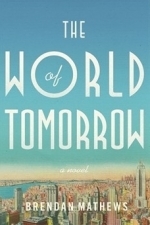
The World of Tomorrow
Book
Three brothers caught up in a whirlwind week of love, blackmail, and betrayal that culminates in an...
Fiction
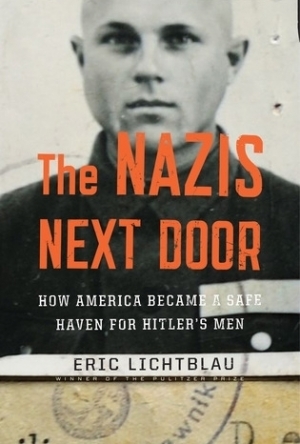
The Nazis Next Door: How America Became a Safe Haven for Hitler's Men
Book
The shocking story of how America became one of the world’s safest postwar havens for Nazis ...

Miss Burma
Book
Miss Burma tells the story of modern-day Burma through the eyes of Benny and Khin, husband and wife,...
Fiction
